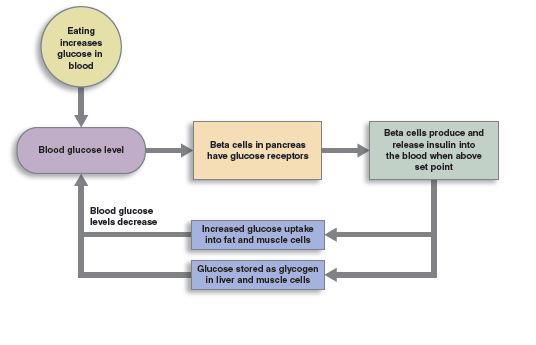Type 1 diabetes is an autoimmune condition that affects insulin production in the pancreas. The immune system attacks the pancreas, so it cannot make insulin. Type 1 diabetes might increase your risk of having worse complications and severe illness from a COVID-19 infection.
Verywell / Nusha Ashjaee
Type 1 Diabetes and COVID-19 Risk
If you have type 1 diabetes, your risk of exposure to COVID-19 is about the same as other people who do not have type 1 diabetes. However, if you work in health care or are involved in activities that expose you to the virus, then your risk is higher than the general population. For example, people who work closely with the public are more likely to be exposed to the virus.
More Research Needed
It is not clear how type 1 diabetes affects your risk of getting COVID-19. As researchers continue to study the virus, we may find out more about the risks for someone with diabetes.
We do know that managing your type 1 diabetes is important for your overall health and for lowering the general risk of getting any type of infection.
Complications of Type 1 Diabetes and COVID-19
Your risk of having complications from COVID-19 might be higher because of type 1 diabetes. You may have worse symptoms and outcomes because of your underlying medical condition.
Having a viral infection can make it more difficult to manage your blood glucose level, so it may be higher than normal. This increases the risk of diabetic ketoacidosis (DKA). During DKA, your body cannot get glucose (sugar) to your cells and burns fat for energy, which leads to the creation of ketones.
Diabetic ketoacidosis can be life-threatening. You should seek immediate medical care if you suspect you have DKA.
Type 1 Diabetes Treatments and COVID-19
You should continue normal treatment for type 1 diabetes as prescribed by your healthcare provider. We do not know if COVID-19 has an impact on any medication or treatment for diabetes, but it is important to continue to manage your blood sugar.
Restocking Your Diabetic Supply
You want to make sure to have at least a 30-day supply of diabetic tools and medications that you use frequently.
Check your diabetes supplies, including:
- Medications
- Continuous glucose monitor
- Insulin
- Needles and pens
- Syringes
- Glucose meter strips
- Lancets
- Ketone strips
- Glucagon
- Supplies for an insulin pump
Frequently Asked Questions
Is COVID-19 more dangerous for people with type 1 diabetes?
You might have a higher risk of complications and worse outcomes from COVID-19 if you have type 1 diabetes. Becoming sick from the virus may be more dangerous for people who have this underlying medical condition.
Should I get a COVID-19 vaccine if I have type 1 diabetes?
If you are 16 or older and have type 1 diabetes, then the Centers for Disease Control and Prevention (CDC) recommends that you be among the first people to get a vaccine for COVID-19.
Talk to your healthcare provider about getting the vaccine. You should discuss all of your medical conditions and allergies before vaccination.
Are the risks of COVID-19 different for people with type 1 diabetes and type 2 diabetes?
The CDC does have different information for type 1 and type 2 diabetes. For type 1 diabetes, the CDC indicates there might be a risk of severe illness from COVID-19. On the other hand, the CDC says that type 2 diabetes does increase your risk of severe illness from the virus.
How to Stay Safe
Everyone should focus on staying safe from the virus. There are steps you can take to lower your risk of getting COVID-19. You may be able to avoid going to the pharmacy or hospital unless it is an emergency. You may also be able to receive your diabetes supplies at home by ordering them.
Stay safe by:
- Wearing a mask
- Washing your hands
- Using hand sanitizer
- Not going out unless it is necessary
- Not staying in big crowds
- Avoiding people who are sick
- Staying 6 feet apart from other people
A Word From Verywell
It is normal to feel concerned about COVID-19 if you have type 1 diabetes. Many people feel anxious because of fears about getting the virus. If your feelings are affecting the quality of your life, talk to your healthcare provider about therapy or additional medications that can help.
The information in this article is current as of the date listed. As new research becomes available, we’ll update this article. For the latest on COVID-19, visit our coronavirus news page.
Additional Resources
- IPL Laser Machine Professional: Professional Hair Removal and Skin Rejuvenation
- CE Certification YAG Laser Pigmentation Removal: Compliance Details – CIELLULU Laser Beauty
- Chicago Laser Skin Rejuvenation: Top Clinics and Treatments – CIELLULU Laser Beauty
- A Comprehensive Guide to Laser Hair Removal – CIELLULU Laser Beauty
- How Q Switched Nd Yag Lasers 532 nm Differ from Other Lasers – CIELLULU Laser Beauty



